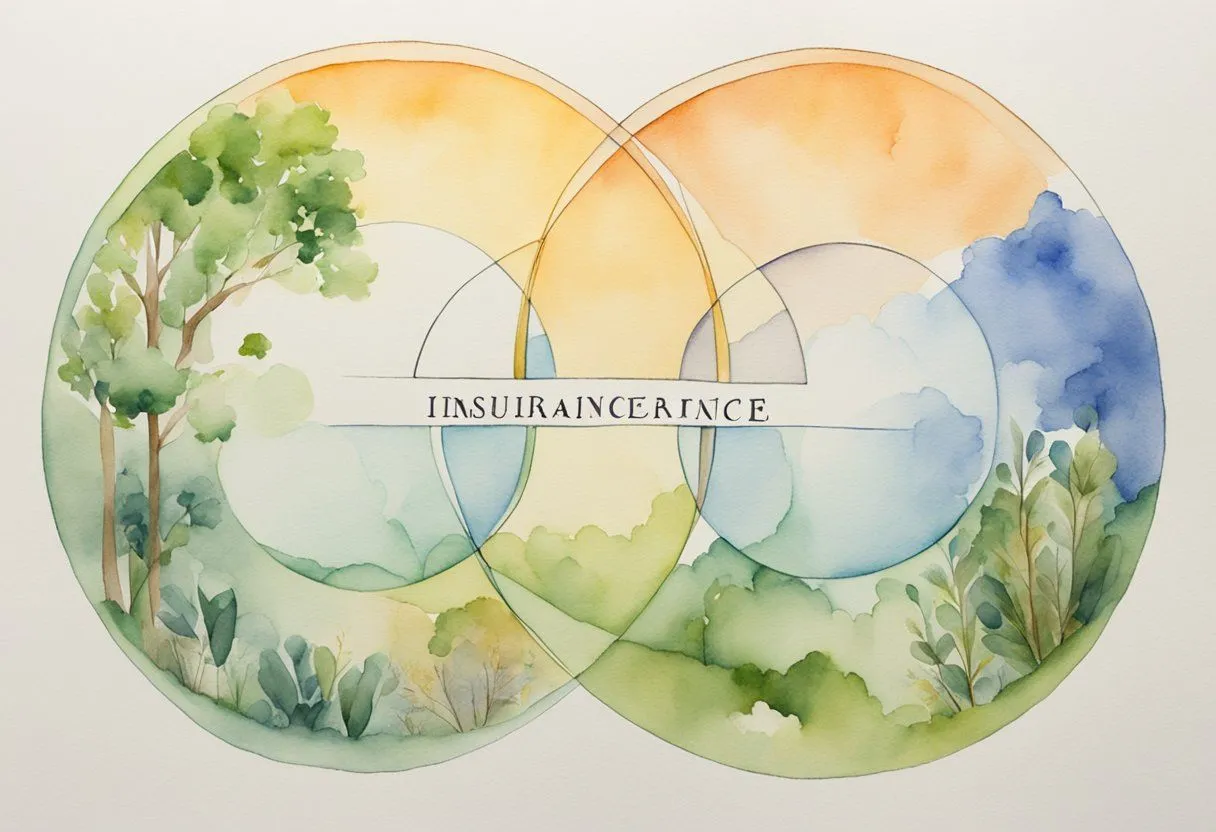Insurance and Investments: Protecting and Growing Your Wealth
When it comes to financial planning, many people focus on either insurance or investments. Insurance is seen as a way to protect oneself and loved ones from unforeseen events, while investments are viewed as a means of growing wealth. However, the two are not mutually exclusive and can actually complement each other. In fact, insurance and investments intersect in many ways, providing both protection and growth opportunities.
One of the most obvious intersections of insurance and investments is through life insurance policies that offer cash value. These policies not only provide a death benefit to beneficiaries but also accumulate cash over time. The cash value can be accessed through loans or withdrawals, providing a source of funds for emergencies or investment opportunities. Additionally, annuities, which are insurance products, can provide a steady stream of income in retirement and act as a complement to other investment vehicles.
The intersection of insurance and investments also extends to other types of insurance, such as disability and long-term care insurance. These policies provide protection against unexpected events that can impact one’s ability to work and earn income. By having this protection in place, individuals can feel more secure in taking investment risks knowing that their financial well-being is protected. Overall, the intersection of insurance and investments offers a balanced approach to financial planning, providing both protection and growth opportunities.
Understanding Insurance and Investments

Insurance and investments are two concepts that are often discussed separately, but they can intersect in a powerful way. Understanding how these two concepts relate to each other can help individuals and businesses protect their assets while also growing their wealth.
The Concept of Insurance
Insurance is a type of risk management that helps protect individuals and businesses from financial loss. Insurance policies are contracts between the policyholder and the insurer, where the insurer agrees to pay a certain amount of money in the event of a covered loss.
There are many types of insurance policies, including:
- Health insurance
- Life insurance
- Property insurance
- Liability insurance
- Disability insurance
- Long-term care insurance
Each type of insurance policy has its own unique features and benefits. For example, health insurance can help cover medical expenses, while life insurance can provide financial support for loved ones after a policyholder’s death.
The Concept of Investments
Investments are assets that individuals and businesses acquire with the goal of generating income or increasing their value over time. Common types of investments include stocks, bonds, mutual funds, and real estate.
Investments can be a powerful tool for building wealth, but they also carry risks. The value of investments can fluctuate based on market conditions, and there is no guarantee that an investment will generate a positive return.
Many individuals and businesses choose to work with financial advisors or investment professionals to help them make informed investment decisions.
Overall, insurance and investments can work together to help individuals and businesses protect their assets while also growing their wealth. By understanding the concepts of insurance and investments, individuals and businesses can make informed decisions that align with their financial goals.
The Intersection of Insurance and Investments
Insurance and investments are two important financial tools that people can use to protect themselves and grow their wealth. While they may seem like separate entities, there is a significant intersection between the two that can provide individuals with both protection and growth opportunities.
Insurance as Investment
Insurance policies can be seen as investments in themselves. By paying premiums, individuals are essentially investing in their future protection against unforeseen events such as accidents, illnesses, and natural disasters. In addition, some insurance policies, such as whole life insurance, can also serve as investment vehicles that offer cash value accumulation over time.
While insurance policies may not offer the same level of returns as traditional investment vehicles such as stocks or mutual funds, they can provide a level of stability and security that is not found in other investments. Insurance policies can also help individuals diversify their portfolios and provide tax benefits.
Investments in Insurance
On the other hand, investments can also be made in the insurance industry itself. Insurance companies are often publicly traded and can provide investors with opportunities for growth and income. By investing in insurance companies, individuals can potentially benefit from the industry’s growth and profitability.
Investments in insurance can also be made through the purchase of insurance-linked securities (ILS). ILS are financial instruments that allow investors to participate in the insurance industry’s risks and rewards. These securities can include catastrophe bonds, industry loss warranties, and sidecars.
Overall, the intersection of insurance and investments offers individuals a range of options for protecting their assets and growing their wealth. By understanding the different ways in which insurance and investments can work together, individuals can make informed decisions that align with their financial goals and risk tolerance.
Benefits and Risks

Benefits of Combining Insurance and Investments
Combining insurance and investments can offer several benefits to individuals. Some of the benefits are listed below:
- Protection: Insurance policies can provide protection to individuals against unforeseen events such as accidents, illnesses, and death. By combining insurance and investments, individuals can ensure that they have adequate protection for themselves and their loved ones.
- Wealth creation: Investments can help individuals create wealth over the long term. By investing in a variety of assets such as stocks, bonds, and mutual funds, individuals can earn returns that can help them achieve their financial goals.
- Tax benefits: Some insurance policies and investment products offer tax benefits to individuals. For example, contributions to a retirement account such as a 401(k) or an IRA can be tax-deductible, while the growth on these investments is tax-deferred.
Potential Risks
While combining insurance and investments can offer several benefits, there are also potential risks that individuals should be aware of. Some of the risks are listed below:
- Costs: Insurance policies and investment products can come with fees and charges that can eat into an individual’s returns. It is important to understand the costs associated with these products and to ensure that they are reasonable.
- Market risk: Investments are subject to market risk, which means that the value of the investment can fluctuate based on market conditions. Individuals should be prepared for the possibility of losing money on their investments.
- Liquidity risk: Some investments may not be easily liquidated, which means that individuals may not be able to access their money when they need it. It is important to consider the liquidity of an investment before investing in it.
Overall, combining insurance and investments can be a powerful tool for individuals who are looking to protect themselves and their loved ones while also creating wealth over the long term. However, it is important to understand the potential risks and to make informed decisions based on individual circumstances and goals.
Conclusion
In conclusion, insurance and investments are two important financial tools that can provide protection and growth for individuals and businesses alike.
Insurance offers protection against unexpected events such as accidents, illness, and death, while investments provide opportunities for growth and increased wealth.
By combining insurance and investments, individuals and businesses can achieve a balance between protection and growth, ensuring that they are prepared for the unexpected while also building wealth for the future.
It is important to carefully consider individual needs and goals when selecting insurance and investment products. Working with a financial advisor can help individuals and businesses make informed decisions and create a comprehensive financial plan that meets their unique needs.
Overall, insurance and investments are powerful tools that can help individuals and businesses achieve financial security and success.



